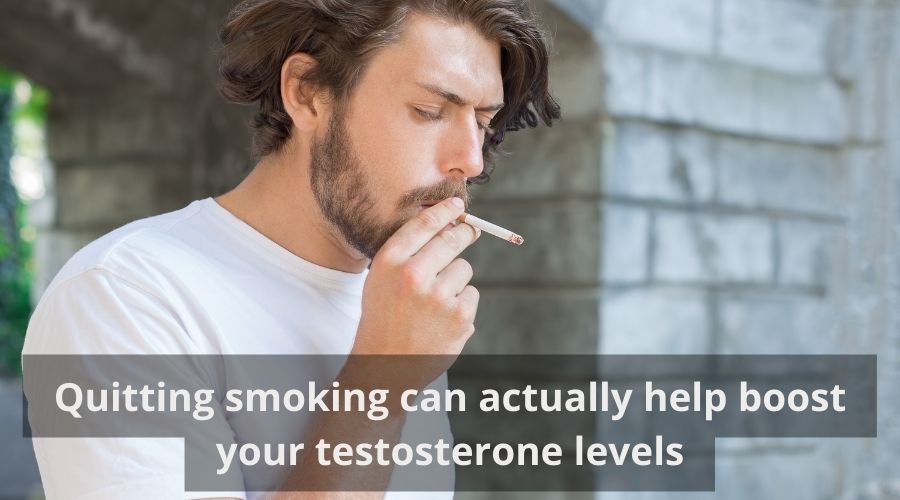
The Ultimate Guide to Boosting Your Testosterone Levels
How to boost your testosterone levels naturally with key foods.
Boost testosterone levels naturally with foods like salmon and oysters.
As women age, their levels of testosterone decline. Testosterone is a hormone that plays a major role in maintaining healthy bones, muscles, and skin; it also helps to promote sexual function. Low levels of testosterone can lead to a number of health problems, including obesity, depression, decreased muscle mass and strength, decreased bone density and increased risk for heart disease. There are many benefits to taking testosterone for women, including improving energy levels, boosting sex drive and reducing symptoms of menopause. Testosterone replacement therapy can be very beneficial for women looking to maintain their health and well-being.
Improve circulation to boost testosterone production.
Improved circulation is one of the key methods to boost testosterone production. This is because increased blood flow to the testicles stimulates protein synthesis and testosterone production. Here are some other methods that can increase circulation:
1) Increased intake of fruits, vegetables, and whole grains. These foods have been shown to improve overall circulatory health, which in turn will help support testosterone production.
2) Exercise. Exercise has been shown to improve overall circulatory health and therefore, increase testosterone production as well. In fact, working out can even increase levels of “good” cholesterol, which is beneficial for testosterone production.
3) Avoid smoking cigarettes and using other harmful substances. Both smoking cigarettes and using harmful substances have been linked with lowered levels of circulating blood, which can decrease testosterone production.
Testosterone boosters that work better than current remedies
Testosterone boosters that work better than current remedies are becoming increasingly popular. One such booster is testosterone cream. Testosterone cream works by increasing the amount of testosterone in the user’s body. This is done by stimulating the user’s own testosterone production. Testosterone cream also has other benefits, such as improving mood and energy levels.
Another testosterone booster that is gaining popularity is testosterone injections. Testosterone injections are a more expensive option, but they offer a higher level of satisfaction due to their longer-term effects. Testosterone injections work by boosting the user’s natural levels of testosterone. They do this by directly injecting small amounts of testosterone into the user’s muscles.
Both testosterone cream and injections offer significant benefits over current remedies. They are more effective and provide longer-term results.

Quitting smoking can actually help boost your testosterone levels
Quitting smoking can help boost testosterone levels
Smoking is one of the leading causes of reduced testosterone levels in men. Quitting smoking can help boost testosterone levels, and there are many benefits to doing so. For example, increasing testosterone levels can help improve sex drive, mood, muscle mass, bone density and strength. In addition, quitting smoking can also reduce the risk of developing other health problems such as heart disease and cancer.
How quitting smoking can actually help boost your testosterone levels
Quitting smoking can actually help boost your testosterone levels! According to a study published in the journal “PLoS One,” researchers found that smokers had lower testosterone levels than nonsmokers. However, after quitting smoking, these testosterone levels increased by an average of 17%. The study’s authors say that this finding supports the theory that smoking is linked to low testosterone levels.
4 health benefits of expelling cigarette smoke
1. Expelling cigarette smoke has numerous health benefits, including boosting testosterone levels.
2. According to a study published in the journal “Toxicology and Applied Pharmacology,” male smokers who expelled tobacco smoke showed an increase in their testosterone levels.
3. The study’s lead author, Dr. Majid Fakhry, said that “the health benefits of expelling [cigarette] smoke are clear.”
4. Indeed, expelling cigarette smoke has been linked with reductions in heart disease risks, cancer rates, and respiratory problems.
Quitting tobacco products: How it can improve overall well-being
Quitting tobacco products can improve overall well-being, according to a study published in the journal Hormones and Behavior. Testosterone levels are lower in people who smoke, and the decrease in testosterone may lead to decreased fertility, increased body fat and other health problems. Quitting smoking can improve these conditions by restoring normal testosterone levels.
Is caffeine bad for your testosterone?
Is coffee the only culprit behind sleepless nights?
Coffee is one of the most popular drinks in the world and it’s no wonder why – it’s energizing and can help you stay awake during the day. But recent studies have shown that coffee may not be the only culprit behind sleepless nights. In fact, testosterone levels may also play a role.
Testosterone is a hormone responsible for many processes in your body, including energy production and sex drive. Studies have shown that people who drink more coffee tend to have lower levels of testosterone, which can lead to problems sleeping.
This isn’t just a theory – research has shown that caffeine actually blocks the effect of testosterone in the body, which is why people feel tired after drinking coffee.
The dark side of caffeine – is it really bad for testosterone levels?
Caffeine is a well-known stimulant that is often found in coffee, tea, and other beverages. It is also present in many over the counter medications. Studies have shown that caffeine can increase blood pressure and anxiety levels. However, there are also studies that suggest caffeine can decrease testosterone levels in men. In fact, some experts say that caffeine can even cause low testosterone levels in some men. So should you avoid caffeine if you want to maintain healthy testosterone levels?
There is definitely a debate surrounding the effects of caffeine on testosterone levels. Some studies suggest that caffeine can actually lower testosterone levels while others show no significant impact at all. It seems that the answer to this question depends on individual factors such as weight, diet, and exercise habits.
Is caffeine really bad for your testosterone levels?
When it comes to caffeine, there is a lot of confusion and misinformation circulating around. Some people believe that caffeine is bad for their testosterone levels, while others swear by its benefits. The truth is, there isn’t a clear answer as to whether or not caffeine really does harm your testosterone levels. However, there are several studies that suggest that moderate coffee drinking may not be the best idea for men looking to boost their T levels.
In general, research suggests that too much caffeine can actually lower testosterone levels in men. In one study, researchers found that when men consumed more than 300mg of caffeine per day, their testosterone levels decreased by an average of 2%. Additionally, other studies have shown that even small doses of caffeine – like the equivalent of two cups of coffee – can have an impact on your hormone levels.
The best way to Combat caffeine’s Effects on Testosterone
Caffeine is a stimulant that has been shown to have negative effects on testosterone levels. Ingestion of caffeine can increase cortisol levels, which can decrease testosterone production. Additionally, caffeine can also block adenosine receptors, leading to decreased performance and increased fatigue. There are various ways to combat the effects of caffeine on testosterone levels. One way is to limit consumption to moderate amounts throughout the day. Another way is to add supplementation with testosterone boosters like tribulus terrestris or deer antler velvet extract to counteract the decrease in testosterone production caused by caffeine ingestion.
Caffeine and Its Relationship to Sleep – What You Need to Know
Caffeine is a stimulant that is often associated with improved cognitive function and increased energy. However, caffeine’s effects on sleep are not as well understood. In general, caffeine can improve sleep when it is consumed in small doses before bedtime. However, too much caffeine can disrupt sleep and increase the risk of insomnia.
Studies have shown that men who consume more than 300 mg of caffeine per day are at an increased risk for developing low testosterone levels. Additionally, people who drink caffeinated beverages late in the evening may experience impaired REM (rapid eye movement) sleep, which is important for memory consolidation.
Improve your testosterone levels by eating a healthy diet.
How can you increase testosterone levels naturally by eating a healthy diet?
There is a lot of debate about whether or not testosterone levels are directly related to diet. However, there are some foods that have been shown to have beneficial effects on testosterone levels. For example, foods that contain high levels of magnesium, such as nuts and seeds, have been shown to help increase testosterone levels. Additionally, foods like cruciferous vegetables and tomatoes can help protect the testicles from damage and inflammation.
Overall, it is important to eat a balanced diet that contains a variety of nutrients in order to increase testosterone levels naturally. It is also important to avoid processed foods and sugars, which can decrease testosterone levels.
Improve your hormonal health by incorporating some healthy testosterone boosting foods into your daily routine.
If you want to improve your hormonal health and boost your testosterone levels, incorporating some healthy testosterone boosting foods into your daily routine is a great way to start. Here are a few ideas:
-Eat plenty of fruits and vegetables: These are both high in antioxidants, which help protect the body against damaging free radicals. Some good sources of antioxidants include blueberries, strawberries, spinach, kale, and carrots.
-Consume nuts and seeds: Both of these foods are full of nutrients and antioxidants that can help improve your hormonal health. Some good sources of nuts and seeds include almonds, cashews, hazelnuts, pumpkin seeds, sunflower seeds, pecans, pistachios, and Brazil nuts.
-Drink plenty of water: Dehydration can impact testosterone production in a number of ways.
